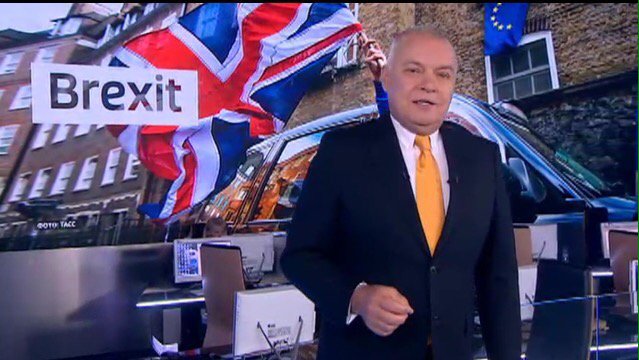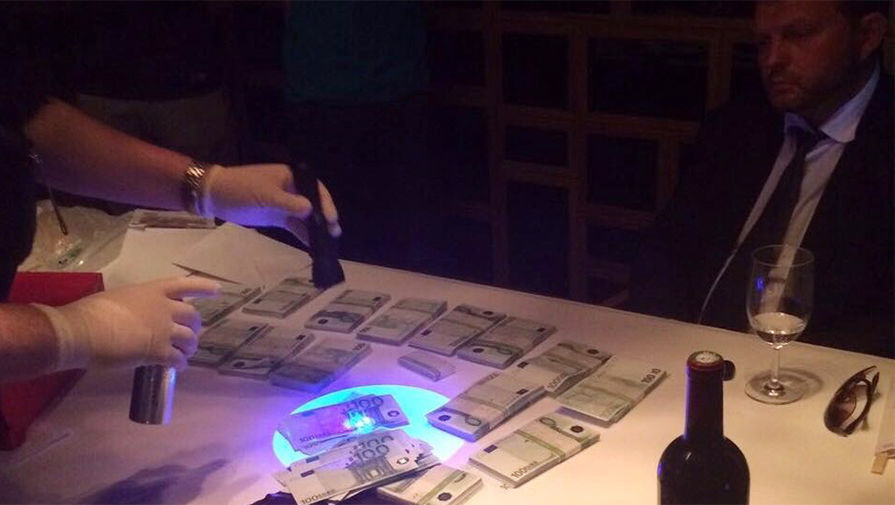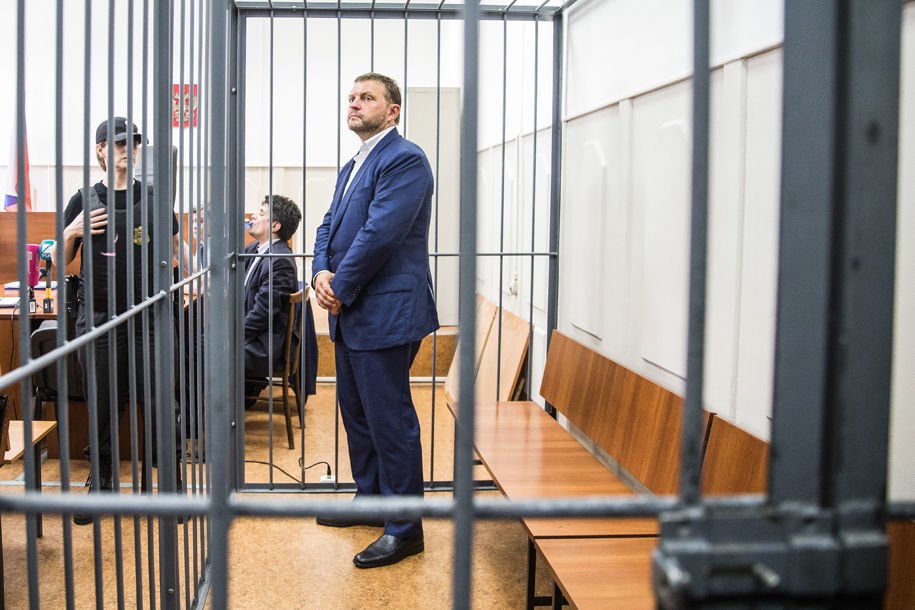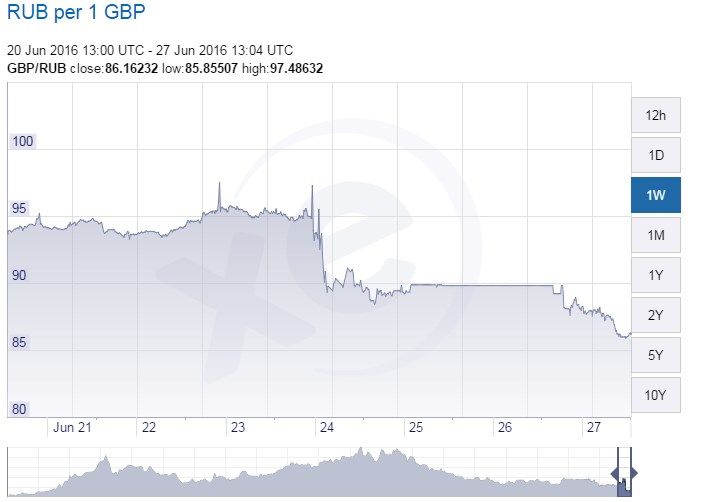LIVE UPDATES: Following the Brexit the ruble is up, and so are the spirits of some of the Kremlin’s biggest supporters.
Welcome to our column, Russia Update, where we will be closely following day-to-day developments in Russia, including the Russian government’s foreign and domestic policies.
The previous issue is here.
Recent Analysis and Translations:
– NATO Got Nothing From Conceding To Russia In the Past, Why Should It Cave To The Kremlin Now?
– Who is Hacking the Russian Opposition and State Media Officials — and How?
– Does it Matter if the Russian Opposition Stays United?
UPDATES BELOW
“This is related, let us say, to the dislike and pressure of a certain type of services and organizations [the FSB–The Interpreter] which, for a year and a half already now, have been trying to explain, including to the administration of the library, that the events that we hold are extremely undesirable for the library and for the city.”
But the prosecutor found that while not all the funds reached the rights-holders, no violations of law were found and both the prosecutor and the Interior Ministry decided not to open any cases due to lack of evidence.
It is not know what prompted a re-opening of the cases, but it could be that authorities simply came to dislike any bastion of independence for creative people that prevents them from depending on the state.
— Catherine A. Fitzpatrick
Nikita Belykh, the governor of Kirov Region dubbed “the last liberal governor in Russia,” was accused of bribe-taking and arrested by officers of the Investigative Committee and Federal Security Service (FSB), Gazeta.ru and Novaya Gazeta reported, citing the Investigative Committee web site.
A one-time fellow opposition member along with slain leader Boris Nemtsov who agreed to cooperate with President Vladimir Putin, Belykh was filmed allegedly receiving a 400,000 euro bribe. The funds were said to be the third installment for helping the Novovyatsky Sky Plant and the Lumber Management Company through various regional investment projects. Belykh said they were funds to help the region and not a bribe.
The names of the bribe-takers have not been released.
“For me, knowing Nikita about 15 years, it is hard to believe that he could take a bribe. But before making some conclusions based on human measures, even by the norms of the law we must hear Nikita’s replies to all these questions and understand his position.”
Later Belykh was elected to the Perm Legislative Assembly with 16% of the vote. But when President Dmitry Medvedev offered him the governorship of Kirov Region in 2008, he turned his back on the opposition, to the condemnation of former colleagues such as Nemtsov and Maria Gaidar.
— Catherine A. Fitzpatrick
The Kremlin claims that the Turkish President, Recep Tayyip Erdorgan, has apologised to Vladimir Putin over the downing of a Russian bomber on the border with Syria last November.
Interfax reports that Dmitry Peskov, Putin’s press secretary, told reporters today:
“President Vladimir Putin received a message from the Turkey’s President Erdogan, in which the Turkish leader expressed his interest in reconciling the situation arising from the destruction of the Russian military aircraft.”
According to the Kremlin press office, Erdogan said:
“I want to once again express my sympathies and deepest condolences to the family of the dead Russian pilot and say that I am sorry. I share their pain with all my heart. We embrace the family of the Russian pilot like a Turkish family. We are ready to take any initiative to ease the pain and severity of the damage caused.”
In addition, Interfax reports, Erdogan said that he was prepared to do everything possible to restore relations between the two countries and cooperate in the “fight against terrorism.”
Turkey’s state-run Anadolu news agency has confirmed the Kremlin’s reports:
This in itself is a dramatic turnaround given that Turkey and Russia are on opposing sides of a proxy war in Syria. Russian and Syrian regime-allied forces continue to assault areas of northern Aleppo near the border, where some rebel units receive Turkish backing.
But the announcement comes on the same day that Turkey made another dramatic move towards reconciliation with a former ally – Israel.
Perhaps ironically, the US dollar is continuing to strengthen as European markets look to invest in the currency and after the British pound hit a new 31-year low today. As a result, the latest news from Bloomberg is that the ruble is even with its previous value against the dollar after both strong rallies and steep declines so far today.
In other words, in currency value and in oil prices, expect tremendous volatility.
Bloomberg reports, however, that sanctions may actually soften the blow for Russia since it is more separated from the European economy, and investors may be looking at emerging markets in order to invest.
European-Union and U.S. sanctions imposed two years ago over the Kremlin’s role in the Ukraine crisis sparked an exodus of foreign capital and closed foreign debt markets to Russia’s biggest state-controlled companies. So long as oil prices hold steady, the ruble may extend its 13 percent gain this year, the second-biggest gain in 24 emerging markets tracked by Bloomberg.
Even Bloomberg admits, though, that expert opinion is mixed. In the current environment there are just too many risk factors and unpredictable variables. In particular Japan, a key player in global markets, is particularly vulnerable right now, and China is trying to climb its way out of slow growth. Russia is counting on China to replace its European trading partners, but as Bloomberg points out, Russia is at a major disadvantage in this relationship and despite stronger calls from both countries for closer ties, China is not the trump card that Russian President Vladimir Putin would hope:

Putin's Trade Pivot to China Isn't All Smooth as Silk for Russia
Russian President Vladimir Putin will discuss China's plans for reviving the ancient Silk Road trade route to Europe during talks with President Xi Jinping in Beijing this weekend. Russia's finding its own road to better trade ties with its neighbor isn't running entirely smoothly.
One thing that is more clear — Russia has been pushing for a weaker European Union, and it just got it. Even before the EU levied sanctions against Russia for its illegal annexation of Crimea and its invasion of eastern Ukraine, the Kremlin launched trade wars and used other bully tactics in an attempt to convince Eastern European countries to avoid signing association agreements with the EU. We’ve also written extensively about Russia’s ties to Euroskeptic and far-right political parties which are all celebrating the Brexit vote.
And as RFE/RL’s Brian Whitmore notes, one only need to look to social media to see how the Kremlim really feels about the UK leaving the European Union:

The Daily Vertical: One Step Closer To The Goal
BROUGHT TO YOU BY RADIO FREE EUROPE/RADIO LIBERTY





